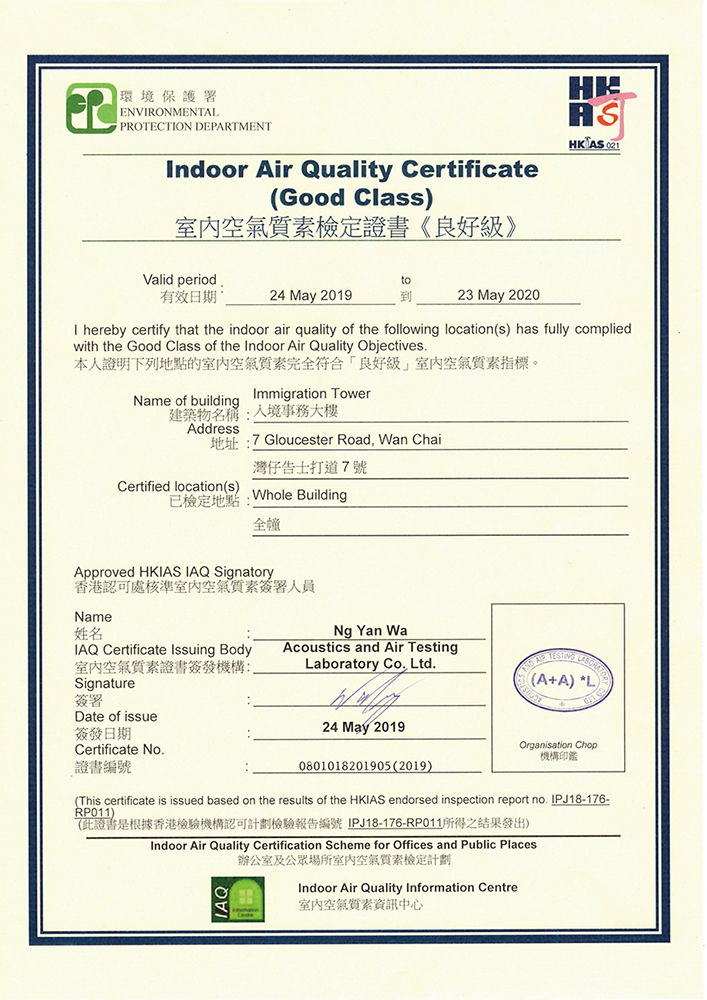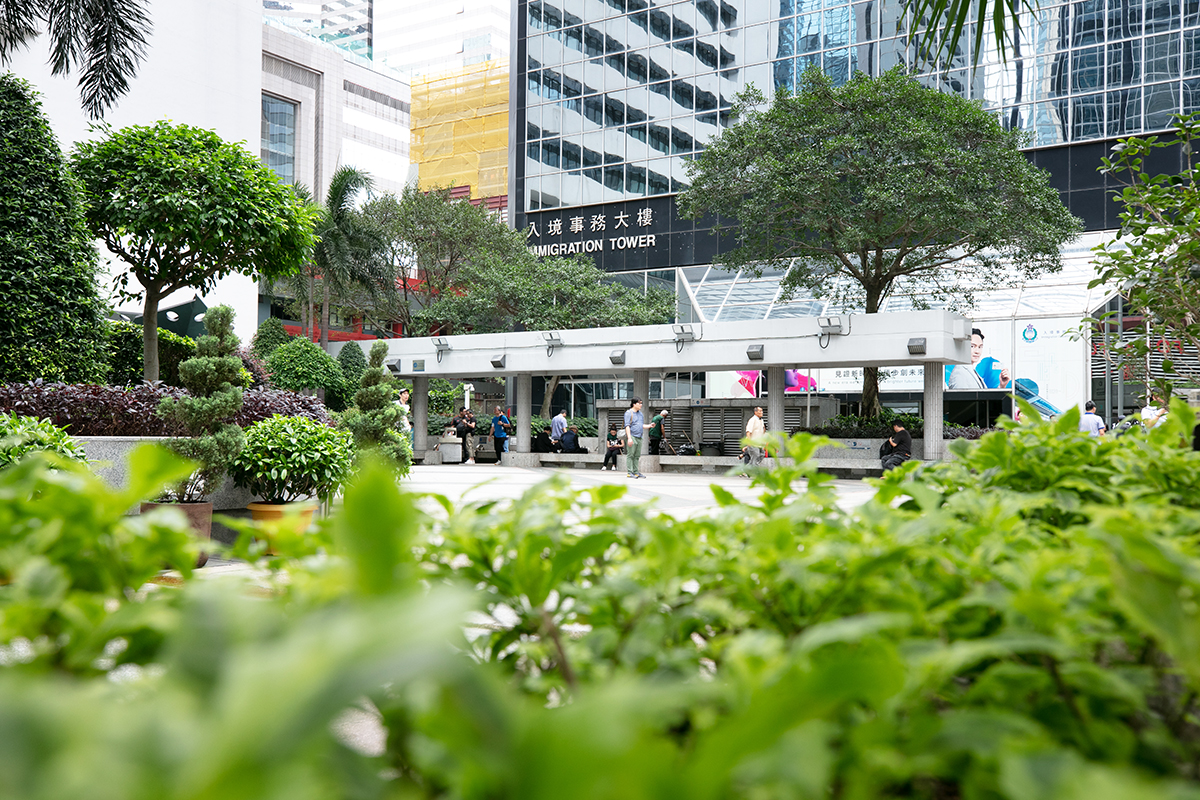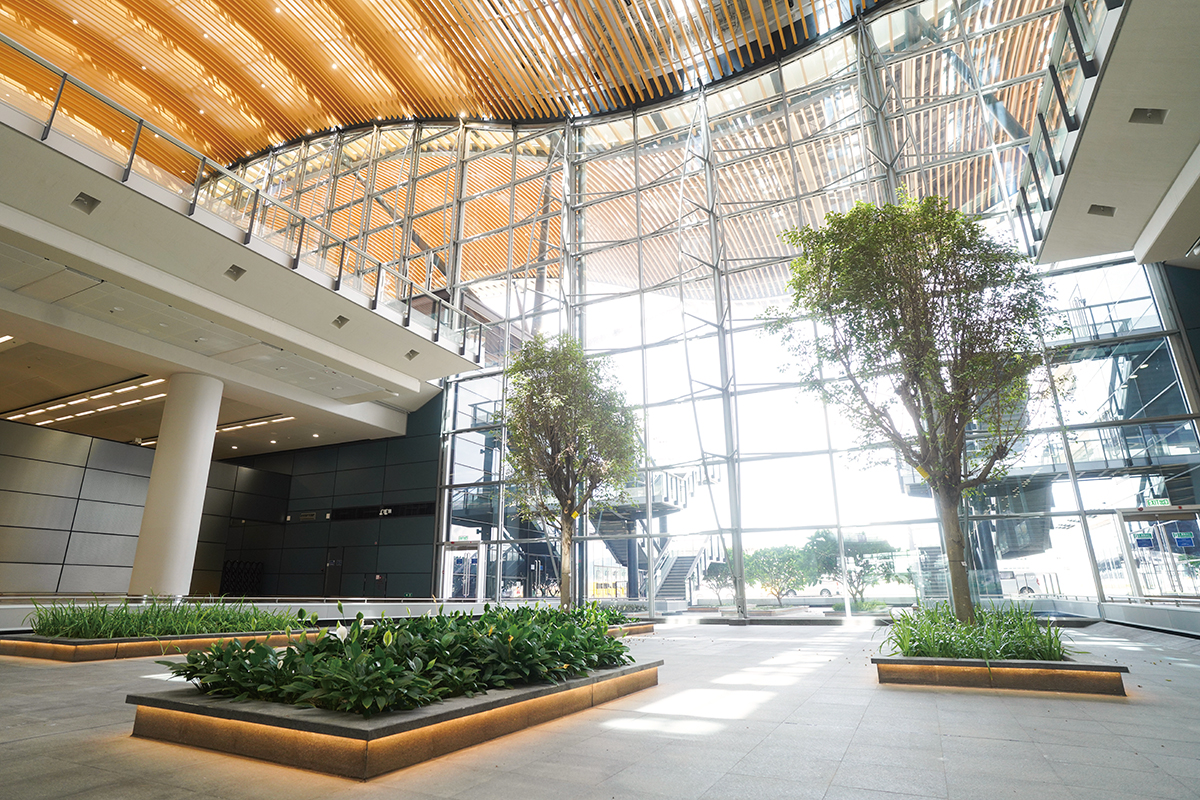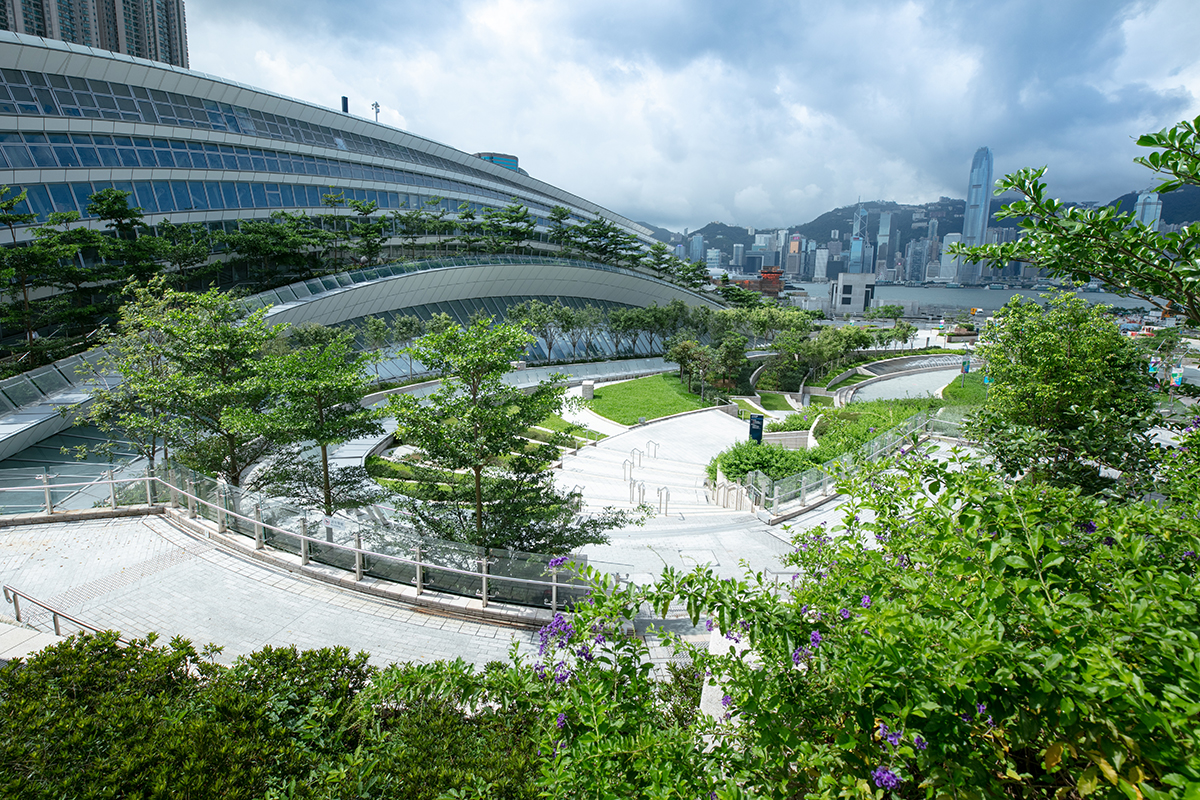The department all along recognises the importance of environmental protection and sustainable development to Hong Kong. Therefore, we are committed to ensuring that all services delivered to the public and our internal operations are conducted in compliance with the environmental protection principles and practices according to the requirements under the relevant environmental legislation, codes of practices and the Clean Air Charter as appropriate. We also encourage the active participation of staff members in adopting green practices in both the workplace and their personal lives.
The department endeavours to support the environmental protection and sustainable development of Hong Kong.
Environmental Management
The Departmental Secretary is appointed as the Green Manager of the department. He is responsible for overseeing, reviewing and formulating various environmental protection measures in the department. Division Heads are assigned to explore opportunities to adopt green initiatives and monitor the energy conservation measures to be implemented in offices under their purview. Energy Wardens are appointed at sub-divisional level to ensure the effective implementation of the green housekeeping measures by conducting regular inspections in office premises and to maintain staff awareness of the importance of persistent conformity to the housekeeping measures. Reviews of green management practices with the main focus on energy saving are conducted by Energy Wardens on a quarterly basis.
The Resources Management Committee, chaired by the Deputy Director and consisted of members of senior management, closely monitors the paper and energy consumption in its monthly meetings. The consumption records are regularly updated and uploaded to our Intranet portal to enable managers at all levels to have a holistic view on the consumption of resources, which facilitates their monitoring process.
Environmental Performance
Energy Conservation
Due to a significant increase in operational activities in the department this year, the power consumption in 2019 increased by 12.7 per cent when compared with that in 2018, with total consumption of about 48 million kWh. The department will continue to implement a series of energy saving measures to reduce energy consumption.
The department will conduct carbon audits on control points and buildings with annual electricity consumption over 500,000 kWh. The findings will help us find out and measure our carbon footprints for the formulation of appropriate carbon reduction measures.
To reduce energy consumption as far as practicable, the department will continue to take the following green measures:
| Green Measures Taken | |
|---|---|
| Lighting |
|
| Air-conditioning |
|
| Office Equipment |
|
| Water Saving |
|
| Others |
|
Minimisation of Paper Consumption
Due to a significant increase in operational activities in the department this year, our paper consumption in 2019 increased by 29.3 per cent when compared with that in 2018. The department will make continuous effort to reduce paper consumption as far as practicable and to maintain its diversified range of measures to minimise paper consumption both externally and internally, including:
External- Sharing information with members of the public via the electronic platform on the departmental website and mobile application for quick and paperless access to information.
- Providing members of the public with a number of e-Services such as online application, online appointment booking, online reporting of immigration offences and registration of outbound travel information, etc. The e-Services serve as a convenient means for the public to obtain our services and help reduce the use of paper.
- Making use of electronic means such as e-mails and Intranet portal to communicate and disseminate information as far as possible.
- Distributing internal circulars and notices as well as posting orders through electronic means.
- Avoiding printing or photocopying documents unless hard copies are absolutely necessary.
- Using both sides of paper and utilising the blank side of used paper for drafting, facsimile transmission, printing and photocopying documents.
- Reusing envelops and file covers.
- Implementing the web-based Electronic Leave Application and Processing System for leave application and approval, and the e-Procurement System for procurement.
- Sending out electronic season's greeting cards during festive seasons.
The green measures listed above were widely accepted by both members of the public and our staff. The department will continue to adopt information technology as far as practicable and closely monitor paper consumption to create a paperless working environment.
Recycling of Waste and Recovery of Resources
To raise the awareness of our staff and members of the public about the benefits of recycling of waste to the environment, the Immigration Tower has participated in the 'Programme on Source Separation of Commercial and Industrial Waste' initiated by the Environmental Protection Department since 2008.
Apart from the traditional wastes, other recyclable wastes including rechargeable batteries, fluorescent lamps and CD-ROMs were also collected through the collection boxes.
To further minimise solid waste and conserve the environment, used printer cartridges have been returned to suppliers by means of trade-in. The department has also included green specifications for stock items to ensure that the products to be purchased will make minimal adverse impacts on the environment.
Support for the Clean Air Charter

The indoor air quality of Immigration Tower attained Good Class in the Indoor Air Quality Certification Scheme organised by the Environmental Protection Department.
To implement the Clean Air Charter, which aims at improving the air quality in Hong Kong, the department has adopted the following measures in our daily operations to minimise the impacts of vehicles and vessels on the environment as far as practicable:
- Encouraging staff members to share pool cars and combine their trips whenever practicable to fully utilise the vehicles and reduce mileage.
- Planning routes when using departmental vehicles to minimise the journey distance and travelling time.
- Encouraging the use of public transport whenever possible.
- Ensuring compliance with the requirement under the Motor Vehicle Idling (Fixed Penalty) Ordinance (Cap. 611, Laws of Hong Kong) by switching off the vehicle engines whilst waiting to reduce exhaust emissions and achieve fuel saving.
- Ensuring proper maintenance of our departmental vehicles and vessels to minimise the production of pollutants and nuisance caused by exhaust emissions.
The total fuel consumption of the vehicle and vessel fleets of the department decreased by 6.3 per cent from 1,307,078 litres in 2018 to 1,225,145 litres in 2019. The department will continue to make the best effort to minimise the fuel consumption and emissions of our vehicle and vessel fleets.
The department endeavours to provide a better working environment for our staff. In this connection, the Immigration Tower has participated in the Indoor Air Quality Certificate Scheme to ensure good indoor air quality that safeguards the health of our staff members. In 2019, the indoor air quality of the Immigration Tower achieved 'Good Class'.
Enhancement of Staff Awareness
To foster a green culture among staff members, the department continued to disseminate the latest news and useful information to staff through e-mails and Intranet portal. Staff members were encouraged to participate in environmental protection campaigns arranged by other departments/organisations, such as the 'Community Chest Green Day' organised by the Community Chest, which encouraged participants to adopt a greener lifestyle such as taking public transport and supporting recycling of waste; the 'Earth Hour' organised by the World Wide Fund for Nature, which encouraged participants to switch off non-essential lights at the appointed time for an hour; the 'Food Wise Hong Kong Campaign' organised by the Environmental Protection Department, which encouraged reduction in food waste; and the 'Moon Cake Box Recycling Programme' and 'Red Packet, Candy/Biscuit Box Recycling Campaign' organised by the Building Management Office of the Immigration Tower.
To enhance the environmental awareness among staff members, the department has displayed posters, green tips and the latest news relating to green matters at various offices. The posted information is updated periodically.
The Way Forward
The department will continue to reinforce and extend the current housekeeping measures, adopt green management principles in all activities and take forward new green initiatives and targets as appropriate. The effectiveness of the green measures will be reviewed periodically in order to seek continuous improvement in the efficient use of energy and resources.









